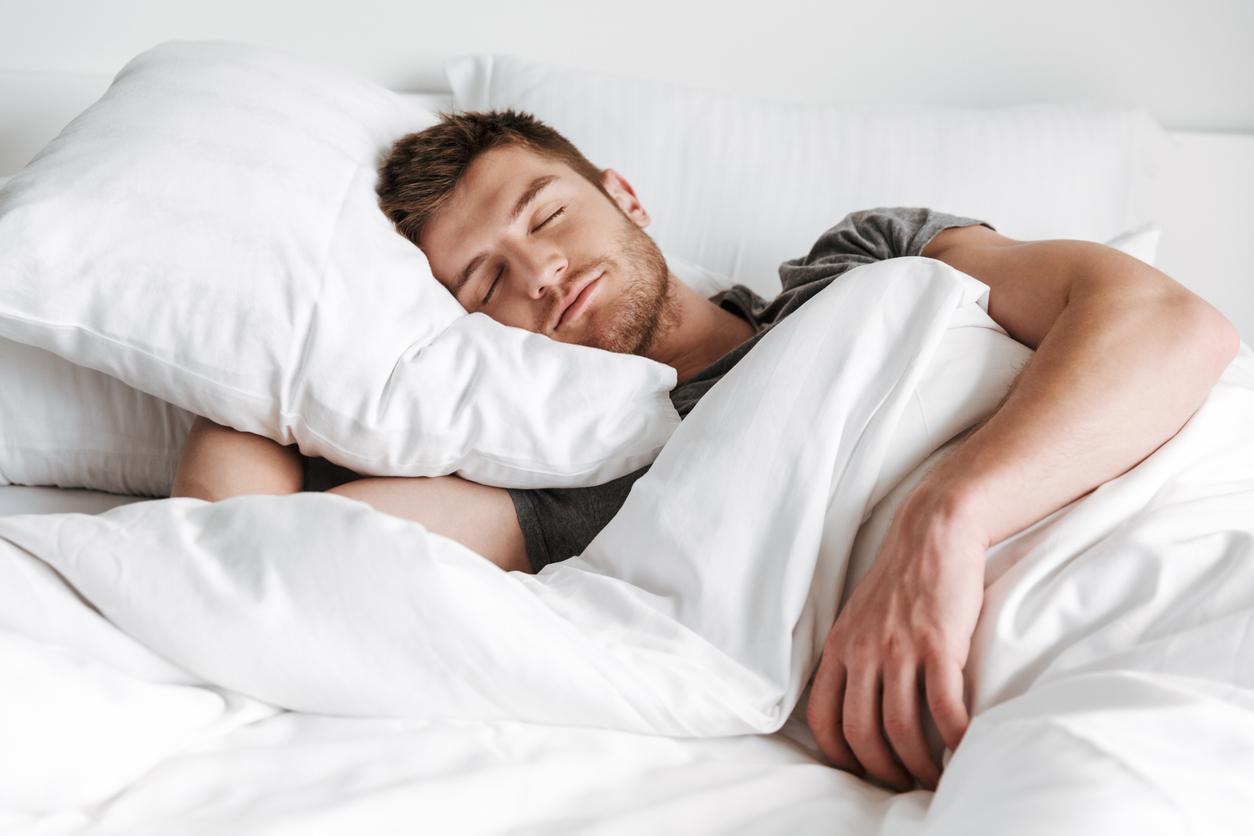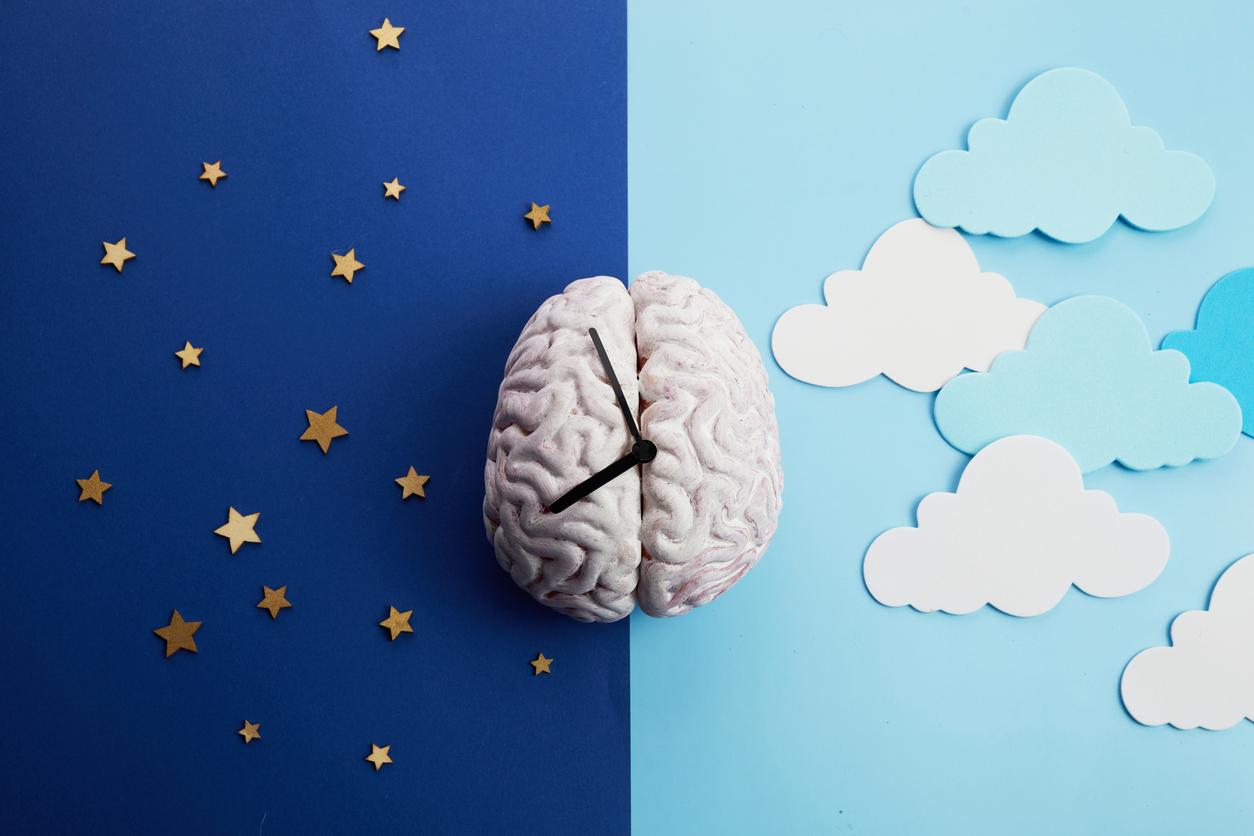Small, medium or heavy sleeper
To each his own sleep. If on average we sleep 7h30 a night, the mistake would be to want to correspond to the norm. Needs differ from person to person. Small, medium or heavy sleeper: the explanation is in fact to be found in our genetic heritage, as shown by studies carried out in twins. “Thus, there are short sleepers who need 5h30 of sleep per night to feel good and long sleepers who, conversely, need more than 9h30 of sleep per night”, explains Dr Isabelle Arnulf. and Delphine Oudiette in “How do we sleep?” published by Le Pommier editions. The “evening” or “morning” character is also programmed in advance. It depends on our biological clock.
For restful nights and days without fatigue, it remains for you to determine your sleeper profile. Start by locating “your doors to sleep” to know when it’s time to get to your bed. Indeed, “each of us may notice that at some point in the evening, he is more easily subject to falling asleep, calls out to us Professor Léger in his book“ Sleep well, finally! ”. Be attentive: he is 11 pm, you have just reread the same newspaper page for the fifth time, your eyelids drop and the book falls from your hands. The sandman passes by and it is the start of one of your cycles. not let it pass because at 11:30 pm, you will be in great shape and you will not want to sleep at all. “
As for how many hours of sleep you need, listen to yourself. “The ideal length of a night is that which allows you to feel rested and have good functioning during the day”, reminds us the National Institute of Sleep and Vigilance (ISV). A clue also: “If you sleep 2 hours more on weekends than during the week, a priori, it is because you are recovering from a sleep debt”, explains Dr François Duforez, doctor. of sleep and sport contacted at the European sleep center in Paris.
Yes, but today, our lifestyles do not always lead us to respect our sleep rhythm, which is not without consequences on our well-being and our health …
We sleep 1 hour less than 50 years ago
In 40/50 years, we have lost 1 hour of sleep. It’s a lot. In the 1960s, the average sleep time was 8:30 am compared to 7:30 am today. In the United States, the average has even fallen below 7 hours. “We think it’s steadily decreasing,” notes Dr Duforez.
Transport time, work, leisure (especially video games, internet and television) gradually encroach on our nights. But neglecting your sleep weakens your health. Public authorities and the medical profession are also increasing awareness campaigns and messages. The theme of the national sleep day in 2008 was “Sleep, a partner in health”.
A lack of sleep first affects the “quality of life”, insists Dr. Duforez. Sleep debt can lead to fatigue, memory and concentration problems, irritability, anxiety and even depression. Another striking consequence: excessive daytime sleepiness. “It manifests itself mainly by falling asleep during periods of inactivity with a peak in the early afternoon,” says the ISV. This drowsiness is a factor in road and work accidents.
“People who do not sleep well, especially in the second part of the night, where blood pressure drops, can potentially trigger hypertensive diseases and therefore cardiovascular problems”, adds Dr Duforez.
Finally, there is a relationship between sleep duration and weight. The less we sleep, the longer the hunger-promoting hormone is secreted and the more we eat with a particular attraction to sugary products.
Getting enough sleep, neither too much nor too little, is therefore essential. Sleep well too. However, many of us suffer from sleep disorders.
Almost 20% of the population is insomniac
Almost 20% of French adults are insomniacs and 10% regularly take a sleeping pill (1). Several symptoms can suggest insomnia: difficulty falling asleep (after 30 minutes, you are still turning in your bed); frequent nocturnal awakenings with difficulty falling back to sleep; too early awakenings (at 5 am, impossible to close the eye); non-recuperative sleep.
“If you’ve had one or more of these symptoms more than 3-4 times a week for more than a month, it’s good to talk to your doctor,” advises Dr. Duforez. Who will direct you if necessary to these specialized structures that are the Sleep and Vigilance Centers with the unfortunately very long waiting list.
Insomnia can have many origins. First, it can be linked to a “hard blow” or a difficult passage (bereavement, illness, too much stress at work, poor lifestyle …). We then speak of reactive insomnia.
It can have an organic cause (a neurological disorder such as Parkinson’s disease, rheumatological pain, endocrine problems such as diabetes, respiratory or heart problems). In other cases, it can reflect a psychiatric disorder. “Anxiety and depression are very frequently found as causes of insomnia, writes Professor Léger in” Sleep well, finally! “. On the other hand, most psychiatric illnesses are accompanied by insomnia.”
Medicines can also interfere with sleep. Other sleep disorders – sleep apnea syndrome, restless legs syndrome… – finally explain certain cases of insomnia.
We then understand the value of the diagnosis which will make it possible to provide the right answers to everyone: drug treatment, behavioral therapy, relaxation techniques … and, first of all, a reminder of the golden rules to set the record straight. . And your nights will no longer look like a nightmare …
(1) Source: “Sleep well, finally!” by Pr Damien Léger at First editions.
Quickly find in Top santé on newsstands today (March issue) the special feature “Sleeping well: new life-changing solutions”. And if your sleep is disturbed too, join our topsante.com forum.


















